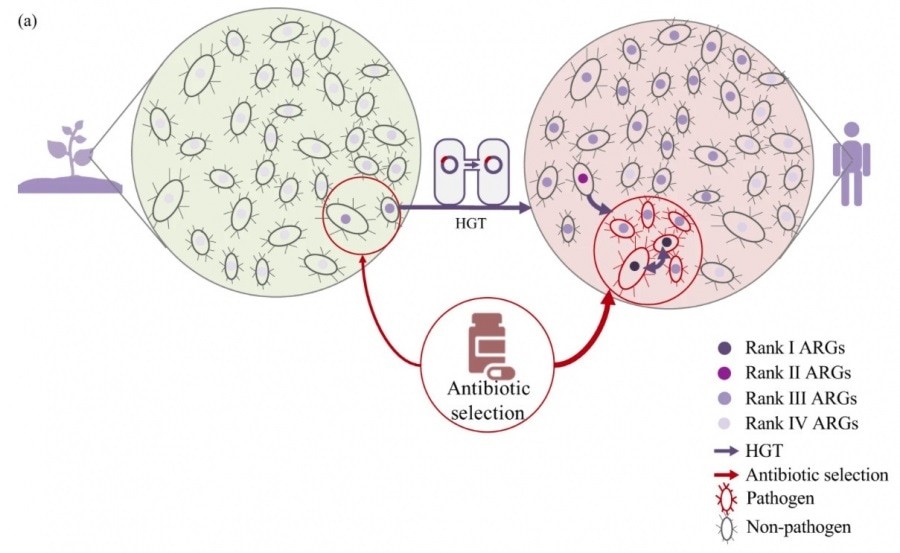Scientists headed by Professor Tong Zhang from the Department of Civil Engineering at the University of Hong Kong have created a useful framework to assess the risks of antibiotic resistance genes (ARGs)—declared by the World Health Organization as a worldwide public health threat.

A conceptual model to demonstrate the evolution and emergence of ARGs accelerated by the selective pressure of antibiotics. Image Credit: The University of Hong Kong.
ARGs are the genetic foundation for antibiotic resistance. The new framework meets a long-term goal of finding high-risk ARGs among the several thousand presumptive ARGs and assesses the risks based on three factors—enrichment in human-related environments, host pathogenicity, and gene mobility.
The framework leads to a sensible risk hierarchy: ARGs that are not related to humans (Rank IV)—or the least likely to endanger human health; human-associated but non-mobile ARGs (Rank III)—less likely to lead to an emergence of new resistance in pathogens; mobile ARGs that might cause new resistance in pathogens (Rank II), and ARGs that exist already in pathogens (Rank I).
The framework is a crucial step to offering guidance to decision-making on ways to handle environmental ARGs. It enables an easy-to-perform assessment in various scenarios, such as improvement of fecal microbiota transplant, environmental risk assessment, etc., and offers a viable approach for zeroing in on current and future antibiotic resistance threats.
The pioneering achievement has been reported in Nature Communications, a leading multidisciplinary science journal.
As we move into an era of heightened molecular surveillance, it is important to interpret the risk of ARGs in environments rather than simply document their presence and concentration. This study provides an easy-to-implement framework and a bioinformatic method to assess ARGs in genomes and metagenomes, and offers insights for future studies.”
Tong Zhang, Professor, Department of Civil Engineering, University of Hong Kong
Source:
Journal reference:
Zhang, A.-N., et al. (2021) An omics-based framework for assessing the health risk of antimicrobial resistance genes. Nature Communications. doi.org/10.1038/s41467-021-25096-3.